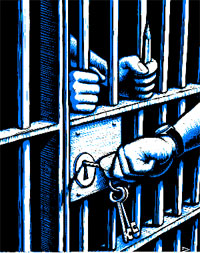 Anita Roddick, founder of the Body Shop chain and supporter of fair trade, died on Sept. 10 at age 64 after a major brain hemorrhage brought on by complications of hepatitis C. Roddick, who was raised Catholic but had deep suspicion of organized religion, gained a new appreciation for Christianity at the UK-based Greenbelt Christian Arts Festival in 2004.
Anita Roddick, founder of the Body Shop chain and supporter of fair trade, died on Sept. 10 at age 64 after a major brain hemorrhage brought on by complications of hepatitis C. Roddick, who was raised Catholic but had deep suspicion of organized religion, gained a new appreciation for Christianity at the UK-based Greenbelt Christian Arts Festival in 2004.
“What’s wonderful about being my age is having to face your prejudices,” Roddick told the Church Times. “I had no idea how big Greenbelt was. I had no idea how organized it was; how free it was; how joyful it was. And I had no idea that there was such a strong activist, trade justice plank in its platform. It’s really hard, when you have had your antennae up for most of these movements, to have completely ignored it. I have fallen for the zeitgeist that says anybody who has a religious inclination has no sense of rationale or intellectual understanding and therefore should be dismissed. I am cheering the Greenbelt festival from the top of every bloody mountain … for me, it’s like a heartbeat. And it’s youth. I’m ashamed of my bloody prejudices, but I’m delighted to be a convert.”
On March 27, 1976, Roddick opened the first Body Shop in Brighton, England. When she decided to franchise the store, Roddick reached out particularly to women and trained countless of them in operating socially responsible businesses. In 2006, she sold the Body Shop empire, more than 2,000 shops worldwide, to L’Oreal for roughly £130 million. “Not content to simply run a globally successful, environmentally friendly business,” reports the CBC’s “As It Happens,” “Dame Anita founded Children on the Edge in 1990, which focused the world’s attention on the disadvantaged children in Eastern Europe. She campaigned tirelessly for environmental issues, and, as an entrepreneur and mother, became a model for businesswomen everywhere.” In 2005, Roddick announced that she would be giving away her entire fortune. “I don’t want to die rich,” she said.
Sojourners was pleased to interview Roddick in 2003. She had just published two books A Revolution in Kindness (as editor) and Brave Hearts, Rebel Spirits: A Spiritual Activists Handbook (with Brooke Shelby Biggs). Sojourners’ David Batstone interviewed Roddick in San Francisco.
Batstone: What motivated you to write about kindness?
Roddick: It was the result of something that happened to me in America. I had written a book about corporate globalization, and it was released the week of the 9/11 tragedy. On the front cover of the book I had included a tagline, “globalization and how to fight back.” So we stopped the release and shredded the cover. In its place, I wrote that we had to move toward a revolutionary kindness.
Batstone: You describe one of your books as a spiritual activists’ handbook. Do you have a religious background?
Roddick: Yes, Catholic.
Batstone: Is your faith still relevant to you?
Roddick: Absolutely. I’m in awe of liberation theology; that is where my heart is. I follow the great spiritual leaders like Jesus and Buddha who actually get their hands dirty. I do feel ashamed of the church at times. All that gold they stole from native peoples in the Americas, for instance. I think they should give it back. But that doesn’t make me cynical. I’m moved by individuals that can polish their feelings of outrage over wrongdoing and do something positive about it. Many of us talk about kindness at great length but don’t do anything. Our kindness has to be fierce.
Batstone: What does fierce kindness look like?
Roddick: It has to be bigger than the personal, and more than random acts. It is not satisfied unless human rights and social justice are present.
Rose Marie Berger is an associate editor of Sojourners. Click here to read Sojourners‘ complete interview with Anita Roddick.

